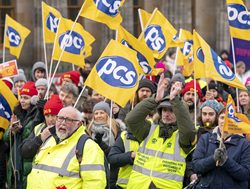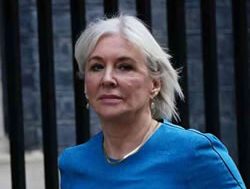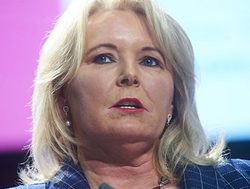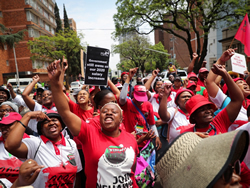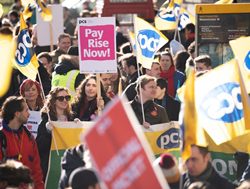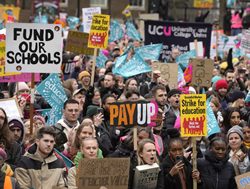 The United Kingdom Government’s dispute with the public sector has escalated after unions reacted furiously to proposed legislation they say could let Ministers ban strikes in some areas.
The United Kingdom Government’s dispute with the public sector has escalated after unions reacted furiously to proposed legislation they say could let Ministers ban strikes in some areas.
This follows a statement by Minister for Business, Grant Shapps in Parliament that he would introduce legislation to “ensure the safety of the British public”.
Both unions and the Opposition Labour Party said Mr Shapps’ proposal for statutory minimum service levels in six areas — health, education, ambulance, transport, fire, border security and nuclear decommissioning — would exacerbate disputes that needed to be resolved by “negotiation, not legislation”.
The text of the Bill contained no details about what would constitute a minimum service level in any of the relevant sectors, although Mr Shapps told MPs that Ministers would consult on the matter.
However, he would retain powers to “make regulations providing for levels of service where there are strikes in relevant services”, prompting worries among unions that the Government could, in effect, veto strikes by setting overly high minimum service levels.
In retaliation, some unions have called for a day of action on 1 February, formally titled a ‘protect the right to strike’ day, following discussions between representatives of the National Health Service (NHS), railways, education and the Public Service at the headquarters of the Trades Union Congress (TUC) in London.
While a spokesperson for the TUC said comparisons with a general strike were wide of the mark, existing anger over declining real-terms pay and staff shortages had been fuelled by the proposed anti-strike law.
The spokesperson did not rule out “highly-disruptive, coordinated stoppages across sectors”.
However, some unions are wary of what has been called the ‘nuclear option’ and at this stage the day of action will probably not happen in the widespread form its advocates were suggesting.
Union officials said they feared that any concerted stoppage, involving massive disruption to a range of key public services, could reduce public support for the continuing campaign of individual strikes.
London 11 January 2023



